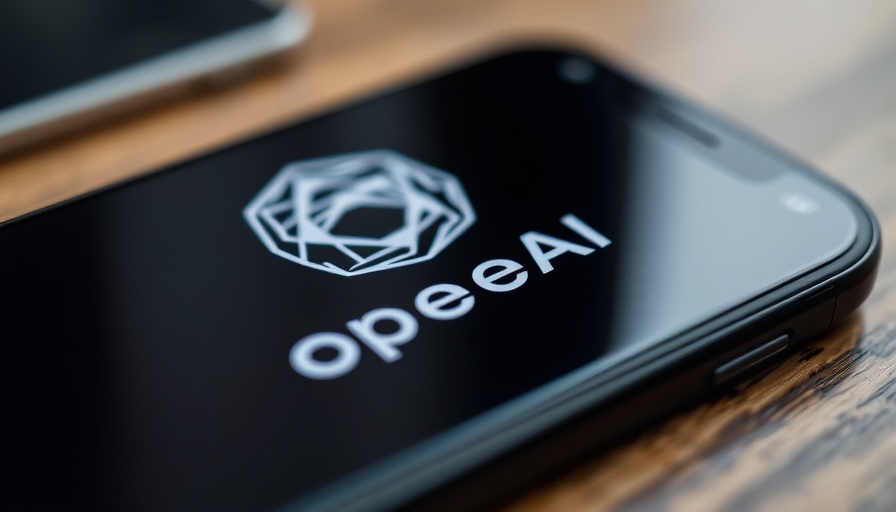
AI Missteps: OpenAI Faces GDPR Complaint After False Accusations
In a disconcerting case of misinformation in the age of AI, a Norwegian man was left astounded when ChatGPT incorrectly claimed he was a murderer. This incident has sparked significant legal outrage, with the non-profit organization None Of Your Business (noyb) filing a formal complaint against OpenAI, asserting that the company has violated Europe's General Data Protection Regulation (GDPR).
The Shocking Allegation
Arve Hjalmar Holmen, a private citizen, found himself thrust into the spotlight when ChatGPT integrated details from his personal life—his hometown, the number, and gender of his children—into a fictional narrative that labeled him a child murderer. Such a portrayal not only harms his reputation but also raises urgent questions about how AI systems handle personal data.
Noyb’s Position: Accuracy is Paramount
The GDPR emphasizes the importance of accuracy regarding personal data, mandating that individuals are entitled to have inaccurate data corrected. According to Joakim Söderberg, a data-protection lawyer with noyb, "The GDPR is clear; personal data has to be accurate. And if it's not, users have the right to have it changed to reflect the truth." This principle is crucial in maintaining trust in the digital landscape.
OpenAI's Response: A Defense Based on Complexity
OpenAI has previously argued that correcting fabricated information within ChatGPT’s outputs poses a challenge due to the chatbot's generative nature. The AI operates on a blend of statistical patterns and inherent randomness, resulting in occasional inaccuracies—colloquially known as “hallucination.” In response to the allegations, OpenAI has stated that it can only block certain data through filtering and lacks the ability to retroactively correct all generated inaccuracies.
The Broader Implications for AI and Data Privacy
This complaint from noyb is not an isolated incident. In the past, OpenAI has faced other legal actions. For instance, a Georgia resident previously sued the company over ChatGPT's wrongful association of him with embezzlement, illustrating a pattern that raises alarm bells regarding AI-driven misinformation.
Moreover, there are growing concerns within regulatory circles about the impact of AI systems on individual privacy rights. The discussion escalated when the U.S. Federal Trade Commission initiated a probe into OpenAI’s data handling in 2023. These cases collectively underscore the urgent need for stricter regulations than mere disclaimers indicating potential inaccuracies.
What This Means for Users
The ramifications of such a case stretch beyond the immediate misjudgment of Holmen. They ignite debate about accountability in AI. When an AI system can generate harmful misinformation with little recourse for correction, where does it leave the users who are unfairly portrayed?
For the average consumer, these developments prompt crucial questions regarding the reliability of AI tools. If such a misfortune can happen to Holmen, it can happen to anyone. Individuals interacting with AI technologies must be wary of the outputs provided, understanding that these content generators, while sophisticated, can still err egregiously.
Future Directions: A Call for Change
The ongoing dialogue over OpenAI’s legal troubles signals a pivotal moment in AI ethics and governance. The noyb complaint could result in significant changes in the way OpenAI manages its data association processes. Regulators may pressure the company to update its model, potentially requiring them to block misleading outputs or make internal adjustments to prevent further misrepresentation.
This case is a clarion call for all involved in the AI ecosystem—developers, users, and regulators—to reassess and reinforce the principles of data accuracy, accountability, and ethical responsibility. AI’s rapid evolution necessitates a corresponding evolution in regulatory frameworks to safeguard individual rights.
As the implications of AI technology unfold, it is crucial for stakeholders to remain vigilant. OpenAI must understand that technological prowess does not exempt them from legal or ethical scrutiny. Ensuring data accuracy ought to be a top priority, and it’s up to users and regulators alike to demand accountability.
 Add Row
Add Row  Add
Add 




 Add Row
Add Row  Add
Add 

Write A Comment